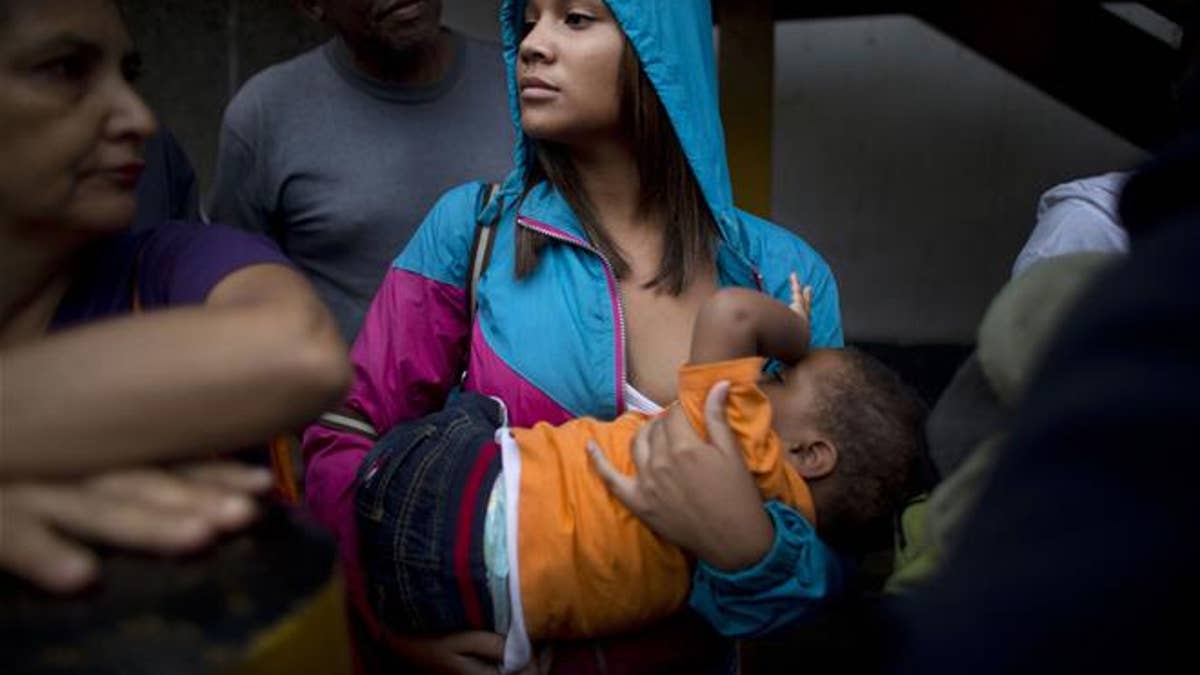
Madeley Vasquez, 16, breast feeds her one-year-old son Joangel as she waits in line outside a supermarket to buy food in Caracas, Venezuela. (AP Photo/Ariana Cubillos)
Add another problem to the catastrophe gripping Venezuela: women opting to sterilize themselves rather than bring a new life into the chaos. No government statistics on sterilization are available, but a social worker tells Reuters she sees up to five women a day who seek to undergo a tubal ligation.
One health program's 40-slot "sterilization days" historically wasn't at capacity; now the waiting list is 500-strong. The skyrocketing cost of hard-to-find contraceptives is at the root.
In a March report on the country's severe food shortages, Vice explains that there are "two prices for everything" in the country: the government price (which requires hours of waiting in line, and no guarantee it'll be in stock) and the black market price, which is often 10 times higher.
Bloomberg reported contraceptives started getting tough to find in December 2014. Vice's reporter went to a dozen pharmacies and found no condoms; women tell Reuters birth control pills are similarly absent, even on the black market.
Reuters reports that when a pharmacy has a 3-pack of condoms in stock, it costs roughly 600 bolivars; the current monthly minimum wage (a combination of money and a food ticket) is about 33,000 bolivars.
For ordinary Venezuelans, those prices are out of reach, and with abortion illegal except to save a mother's life, there are few options. A 38-year-old mother tells Reuters that a pregnancy announcement used to be joyous news.
"Now when a woman says 'I'm pregnant', everyone scolds you. It makes me sad for young women." (The fastest-growing birth control method isn't the pill.)
This article originally appeared on Newser: As Venezuela Reels, Women Turn to Sterilization
More From Newser
